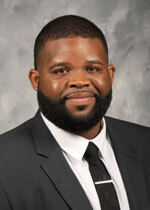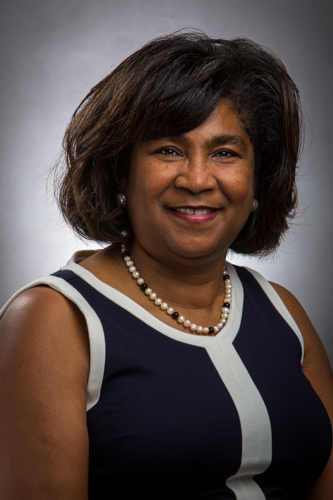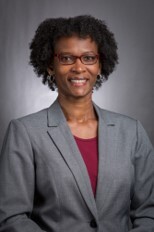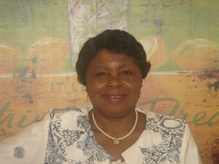
NHEW 2022: Role of HBCUs in Addressing Health Disparities in the African American Communities.
Recorded On: 10/17/2022
-
Register
- Non-member - $18
- Member - $9
- Student Member - $5
- Student Non-Member - $10
| The webinar will provide an historical overview of HBCUs in addressing social justices and health issues, accomplishments of HBCUs in addressing health disparities, and recommendations for achieving health equity among African Americans and other racial minorities through the work and collaboration with HBCUs. Specifically, panelists will highlight programs at HBCUs that address health disparities among African Americans. In addition, panelists will participate in an active Q&A with participants. After this session, the participants will be able to: 1. Describe the role of HBCUs in addressing health disparities the African American communities. (5.2) 2. Recommend strategies for collaborating with HBCUs to help achieve health equity among African Americans and other racial minorities (5.2) |

Antonio Gardner, PhD
Assistant Professor
Mississippi State University
Dr. Gardner is an assistant professor of health promotion at Mississippi State University. He received his PhD in Health Education and Health Promotion (2016) from the University of Alabama, MS in General Human Environmental Sciences with a Specialization in Rural Community Health (2011) from the University of Alabama, and BS in Biology (2009) from Alabama A&M University. Furthermore, he possesses Certified Health Education Specialist credential through the National Commission for Health Education Credentialing, Inc. Gardner’s research interests are in health equity with a focus on rural and/or African American populations. His current research examines the risky sexual behaviors and readiness of rural African American men to participate in barbershop-based HIV prevention programs, and COVID-19 disclosure decisions among rural African Americans. Previous research examined the black church’s response to the Jackson Water Crisis. He is also a co-investigator on one study that examines older rural African American adults’ attachment to place and their perceptions of well-being in relation to place, and another study which examines high school students’ interest in food and health science careers based on the delivery of tailored curricula to expose them to the professions in the respective fields.

Dr. Deborah Fortune, Ph.D., CHES, FAAHE (Moderator)
Professor
North Carolina Central University
Deborah A. Fortune, Ph.D., CHES, is an associate professor in the Department of Health Education at North Carolina Central University and is a Master Certified Health Education Specialist. Prior to her current position, Dr. Fortune was the director of the National HIV & CSHE Project with the American Association for Health Education. She has been a faculty member at the following institutions: East Tennessee State University, University of North Carolina at Charlotte, and Marymount University. Dr. Fortune received her B.S. degree in Biology from Mississippi University for Women, M.S. degree in Community Health Education from the University of Southern Mississippi, and her Ph.D. in Public Health Education from the University of Tennessee, Knoxville. Dr. Fortune has provided instructor training in comprehensive school health education (Growing Healthy curriculum and Teenage Health Teaching Modules), HIV/AIDS for African Americans, youth violence prevention, and cultural diversity in health education. Her research interests include HIV and sexual health among African American college women, youth violence prevention, professional preparation in health education, and faculty and youth mentoring. She has published and made numerous presentations on those topics.

Seronda Robinson, PhD
Professor
NCCU Department of Public Health Education
Seronda A. Robinson is an Epidemiologist and Professor in the Department of Public Health Education at North Carolina Central University (NCCU). She has served at NCCU for 16 years. Her research interests focus on health disparities involving and resulting from the social determinants of health. Dr. Robinson has conducted research in areas including obesity and body image, hypertension, cancer, kidney disease and diabetes.
Dr. Robinson currently serves on the African-American COVID Response Task Force (AACT+) and as a member of NCCU's Advanced Center for COVID-19 Related Disparities (ACCORD), which aims to facilitate COVID-19 testing and vaccination and conducts multidisciplinary research to study the public health and economic impact of COVID-19 on underserved communities in North Carolina. She also leads a telehealth series that provides the community with health information to raise awareness and enhance behavioral health promotion and disease prevention.
At NCCU, Dr. Robinson also serves as the coordinator for the nationally-recognized Eagle Pride Blood, Marrow, Organ, Sickle Cell, and Cord Blood Drive. She is the adviser of the Gamma Phi Chapter of Eta Sigma Gamma National Health Education Honorary. Dr. Robinson also leads the “Eat Smart Be Active” initiative that promotes healthy nutritional choices and increasing physical activity. Through this initiative, the university has identified campus trails that are followed during the annual NCCU First Lady's Walk each spring.
Dr. Robinson has appeared on numerous broadcast and radio shows, including segments on UNC TV, WUNC, WTVD-ABC 11, where she offers education on numerous public health topics, such as Ebola and preventing its spread and the importance of understanding the impact of COVID-19 on underserved communities. She is published in book chapters on addressing diabetes health disparities in African Americans and leadership and community-based research.
After earning bachelor’s and master’s degrees in mathematics from Clark Atlanta University, Dr. Robinson received a doctorate in epidemiology from the Gillings School of Global Public Health at The University of North Carolina at Chapel Hill.

Maria U. Okeke, PhD
Professor
Florida A&M University
Maria U. Okeke, Ph.D. is a Professor in the Department of Health, Physical Education, and Recreation at Florida A&M University (FAMU). She completed her graduate studies in Health Education/Public Health at the University Tennessee-Knoxville. She has over 30 years of experience teaching health education courses and implementing University health promotion programs. Her research interests include maternal and child health, improvement of family planning, and sex education in the developing country, education of youth on self-esteem, violence prevention, and HIV/AIDS prevention education, and renovation of rural high schools in Arondizuogu, Nigeria, and sponsoring scholarships for rural indigent students.